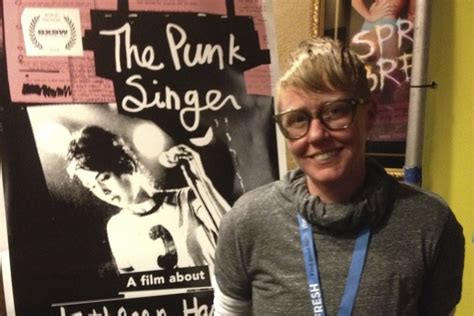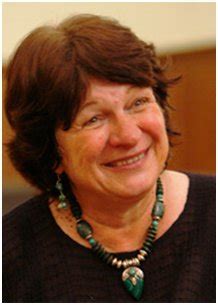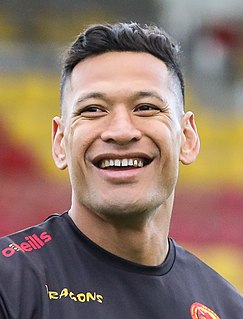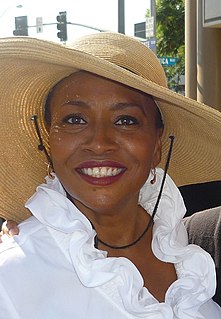A Quote by Paul Bloom
Empty heads, cognitive science has taught us, learn nothing. The powerful cultural and personal flexibility of our species is owed at least in part to our starting off so well-informed; we are good learners because we know what to pay attention to and what questions are the right ones to ask.
Related Quotes
We're herded into schools and terrified into behaving. Taught how we're supposed to pretend to be, taught to parrot all kinds of nonsense at the flick of a switch, taught to keep our heads down and our elbows in and shut off our minds and shut off our sex. We learn we can't even piss when we have to. That's how we learn to be plastic and dumb.
We usually do pay attention to our outer appearance, typically noticing whatever part of our bodies we are unhappy about. It behooves us, however, to get on very good terms with more than just the surface of our bodies as we grow older; for if we don't listen to our bodies and pay attention to our physical needs and pleasures, this vehicle that we need to be running well to take us into a long and comfortable life, will limit what we can do and who we become.
Most of us are visual learners. Some of us are auditor learners – we learn by hearing. Many of us are kinesthetic learners. We learn by doing, touching, feeling. I have found … that we need an educational model that is current, that meets the need of our students. America must understand that she needs Muslims.
Decision-making is difficult because, by its nature, it involves uncertainty. If there was no uncertainty, decisions would be easy! The uncertainty exists because we don't know the future, we don't know if the decision we make will lead to the best possible outcome. Cognitive science has taught us that relying on our gut or intuition often leads to bad decisions, particularly in cases where statistical information is available. Our guts and our brains didn't evolve to deal with probabilistic thinking.
If your skin is crawling, pay attention. If something doesn’t feel right, pay attention. If the hairs on the back of your neck prickle, if your gut clenches up, if a wave of wrongness washes over you, if your heart starts beating faster, pay, pay, pay attention. Do not second-guess yourself or rationalize anything that impedes your safety. Our instincts are the animal inside of our humanness, warning us of danger.
The great cognitive shift is an expansion of consciousness from the perspectival form contained in the lives of particular creatures to an objective, world-encompassing form that exists both individually and intersubjectively. It was originally a biological evolutionary process, and in our species it has become a collective cultural process as well. Each of our lives is a part of the lengthy process of the universe gradually waking up and becoming aware of itself.
From the simplest lyric to the most complex novel and densest drama, literature is asking us to pay attention. Pay attention to the frog. Pay attention to the west wind. Pay attention to the boy on the raft, the lady in the tower, the old man on the train. In sum, pay attention to the world and all that dwells therein and thereby learn at last to pay attention to yourself and all that dwells therein.
High SQ demands the most intense personal integrity. It demands that we stand open to experience, that we recapture our ability to see life and others afresh, as though through the eyes of a child, to learn how to tap into our intuition and visualization, as a powerful means of using our inner knowing to “make a difference.” It demands that we cease to seek refuge in what we know and constantly explore and learn from what we do not know. It demands that we live the questions rather than the answers.
We all have within us a deep sense of what we need, and what is right and true for us. To access this we need to pay attention to our feelings and our intuition. We need to learn to listen deeply to ourselves and to trust what we hear. And we need to risk acting on what we feel to be true. Even if we make mistakes, we must do this in order to learn and grow.
It's funny how you can't ask difficult questions in a familiar place, how you have to stand back a few feet and see things in a new way before you realize nothing that is happening to you is normal. The trouble with you and me is we are used to what is happening to us. We grew into our lives like a kernel beneath the earth, never able to process the enigma of our composition...Nothing is normal. It is all rather odd, isn't it, our eyes in our heads, our hands with five fingers, the capacity to understand beauty, to feel love, to feel pain.
Since the purpose of reading, of education, is to become good, our most important task is to choose the right books. Our personal set of stories, our canon, shapes our lives. I believe it is a law of the universe that we will not rise above our canon. Our canon is part of us, deeply, subconsciously. And the characters and teachings in our canon shape our characters--good, evil, mediocre, or great.
Pay attention to your friends; pay attention to that cousin that jumps up on the picnic table at the family reunion and goes a little too 'nutty,' you know what I mean? Pay attention to that aunt that's down in the basement that never comes upstairs. We have to pay attention to our friends, pay attention to your family, and offer a hand.






































